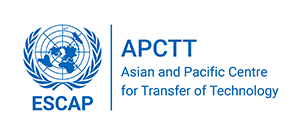Fuel for Micro Fuel Cells
Micro fuel cells are becoming increasingly interesting as an alternative to conventional accumulators or batteries for powering mobile communication and other interactive devices such as cell phones, laptops, camcorders and PDAs. Fraunhofer ISE in Freiburg has developed a miniature electrolyzing system that enables such metal hydride storage units to be filled with high-purity hydrogen both quickly and decentrally. In just twelve minutes, it generates enough hydrogen from water to power, for example, a camcorder for two hours. To enable the metal hydride storage units to be filled quickly, Fraunhofer ISE’s hydrogen technologists have combined 15 electrolysis cells to form a stack. The individual cells are made from a special plastic using an injection molding process suitable for series production. This reduces the costs for the bipolar plates by around 90 percent and the weight of the electrolysis stack is halved. To fill the metal hydride storage, the hydrogen is supplied at a pressure of 10 bar and dried maintenance-free in a membrane module. A second, down-stream drying stage increases the service life by a factor of eight. A microcontroller-based control concept, which has also been developed at Fraunhofer ISE, ensures that the system operates reliably at the push of a button. A comprehensive safety analysis underlies the system’s hardware component-based safety strategy. “Micro fuel cell systems, as a technology of the future, have considerable potential for powering off-grid and portable electronic devices,” says Dr. Christopher Hebling, head of the Department for Energy Technology at Fraunhofer ISE. In this context, the institute presents, besides the mini-electrolyzer, its latest work in the field of fuel cell development. “We are currently expanding the field of application of our micro fuel cells to extreme temperature ranges and thus making them suitable for outdoor use,” explains Christopher Hebling. Whether with icy temperatures of -20° C or a heat wave of +40° C, the micro fuel cell system always starts. The miniaturization of the electrolyzing system and the micro fuel cell system for outdoor applications were supported by the German Federal Ministry of Economics and Technology and conducted in collaboration with partners from industry and research. The project supporting body is the VDI/VDE-IT. For more information, contact: Karin Schneider Presse and Public Relations Fraunhofer-Institut für Solare Energiesysteme ISE Heidenhofstr. 2 79110 Freiburg Germany Phone.: +49 (0) 7 61/45 88-51 50 Fax: +49 (0) 7 61/45 88-93 42 E-mail: info@ise.fraunhofer.de
Sector: Renewable Energy Technologies
Country: India
Area of Application: Micro electronics, Nanomaterials industry
Keywords: Micro fuel cell, Hydrogen
Advantages: This system enables metal hydride storage units to be filled with high-purity hydrogen both quickly and decentrally. In 12 minutes, it generates enough hydrogen from water to power, for example, a camcorder for two hours.
Environmental aspects: Energy efficiency
Development Status: Commercial Prototype
Legal Protection: Patent
Technical specifications:
Transfer Terms: Consultancy
Target Countries:
Estimated cost (US$):
Upload any relevant document:
Contact Person: APCTT (UNESCAP)
Address: Asian and Pacific Center for Transfer of Technology (APCTT) C-2, Qutab Instituational Area
City: New Delhi
Country: India
Zip/Pin Code: 110016

